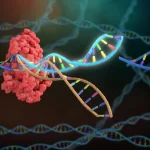
Top Bioinformatics Colleges: Your Pathway to a Successful Career
February 22, 2025Introduction to Bioinformatics
Bioinformatics is an interdisciplinary field that merges biology, computer science, and data analysis to decipher complex biological data. With the ever-growing demand for skilled bioinformaticians in academia, pharmaceuticals, healthcare, and biotechnology, selecting the right institution to pursue a degree in this field is crucial for career success.
Many prestigious colleges and universities worldwide offer bioinformatics programs that equip students with the theoretical knowledge and practical skills required to excel in this dynamic industry. These institutions provide cutting-edge facilities, industry-aligned curricula, and extensive research opportunities, fostering innovation and collaboration with leading experts and organizations.
This article explores some of the best bioinformatics colleges, highlighting their academic offerings, research initiatives, and overall educational excellence to help students make well-informed decisions about their academic and professional futures.
Top Bioinformatics Colleges in the United States
1. Johns Hopkins University
Johns Hopkins University is renowned for its interdisciplinary Center for Computational Biology (CCB), which offers undergraduate and graduate programs in bioinformatics and computational biology. The university emphasizes collaborative research, integrating bioinformatics with other scientific disciplines, ensuring that students gain a holistic understanding of the field.
2. Massachusetts Institute of Technology (MIT)
MIT is home to the Broad Institute of MIT and Harvard, a globally recognized research center specializing in genomic medicine and computational biology. MIT students can pursue degrees in biological engineering, computational biology, and bioinformatics, benefiting from state-of-the-art research facilities and cross-disciplinary collaborations.
3. Stanford University
Stanford University’s Bioinformatics Program provides undergraduate and graduate pathways, offering courses and research opportunities in genomics, proteomics, and computational biology. The university collaborates with institutions like the Stanford Center for Computational, Evolutionary, and Human Genomics to facilitate cutting-edge research.
4. Harvard University
Harvard University has a strong bioinformatics focus, with faculty members actively contributing to research in the field. Students can enroll in bioinformatics-related programs through the Department of Organismic and Evolutionary Biology and the Center for Systems Biology, gaining access to extensive research and innovation opportunities.
5. University of Pennsylvania
The University of Pennsylvania’s Department of Computer and Information Science offers an MS in Bioinformatics Engineering, blending coursework in molecular biology, computer science, and bioinformatics. The program equips students with a solid foundation to thrive in bioinformatics-related careers.
6. University of Nebraska Medical Center
The University of Nebraska Medical Center offers a comprehensive bioinformatics program integrating computer science, statistics, and biology to analyze and interpret complex biological data. The program focuses on personalized medicine, tailoring treatments based on genetic, lifestyle, and environmental factors. Students benefit from interdisciplinary collaborations with experts in biology, computer science, and medicine, preparing them for careers in biomedical research and healthcare.
7. Columbia University
Columbia University’s Department of Biology offers a Ph.D. program in Biological Sciences with research opportunities in genomics and computational biology. The program is ideal for students seeking research-intensive training and access to advanced facilities.
Key Considerations When Choosing a Bioinformatics College
1. Location
The geographical location of a college influences access to research facilities, industry connections, and job opportunities. Urban areas often offer more exposure to biotechnology firms and research institutions.
2. Tuition and Financial Aid
Tuition costs vary among institutions, and prospective students should research financial aid programs, scholarships, and in-state tuition benefits to ensure affordability.
3. Acceptance Rate
A college’s acceptance rate reflects its selectivity. Competitive institutions may have lower acceptance rates, but strong academic records and relevant experience can enhance admission chances.
4. Faculty Expertise
Faculty members with extensive research experience and publications in bioinformatics enhance the quality of education. Look for programs with faculty actively engaged in cutting-edge research and industry collaborations.
5. Net Cost
Beyond tuition, students should consider the total cost of attendance, including living expenses, lab fees, and financial aid availability.
6. Degree Levels
Bioinformatics programs range from undergraduate to doctoral levels. Students should choose a college offering degree programs aligned with their career aspirations.
Bioinformatics Degree Programs
1. Undergraduate Degree in Bioinformatics
A Bachelor’s degree in bioinformatics provides foundational knowledge in biology, computer science, and statistics. Some notable programs include:
- University of Alberta, Canada
- University of California, San Diego
- University of Toronto, Canada
Courses typically cover:
- Bioinformatics databases
- Computational biology techniques
- Molecular biology and genetics
- Programming languages (Python, R, Java)
2. Master’s Degree in Bioinformatics
A Master’s degree allows students to specialize in advanced topics such as:
- Algorithm development for genomic data
- Biostatistics and machine learning applications
- Computational modeling of biological systems
Many programs offer hands-on research experiences and industry collaborations, enhancing career prospects.
3. Ph.D. in Bioinformatics
A doctoral program prepares students for careers in research, academia, and industry. Ph.D. candidates typically:
- Engage in extensive research projects
- Publish scientific papers
- Develop advanced computational tools for biological data analysis
Essential Skills for Bioinformatics Students
1. Biological Sciences
Understanding molecular biology, genomics, and genetics is critical. Key topics include:
- Proteomics
- Transcriptomics
- Evolutionary biology
2. Computer Science and Programming
Proficiency in programming languages such as Python, R, and Java is essential for bioinformatics applications. Additional skills include:
- Data structures and algorithms
- Database management
- Machine learning techniques
3. Statistics and Data Analysis
Statistical knowledge is crucial for interpreting biological data. Core topics include:
- Probability and hypothesis testing
- Regression analysis
- Bayesian statistics
Specializations and Research Areas in Bioinformatics
Bioinformatics offers diverse specialization areas, enabling students to tailor their education to specific interests:
1. Computational Biology
Focuses on developing algorithms and models to study biological systems. Researchers in this field apply mathematical and computational techniques to analyze large-scale biological datasets.
2. Genomics and Transcriptomics
Involves analyzing genomic sequences and gene expression data to understand cellular functions and disease mechanisms.
3. Systems Biology
Examines biological interactions within cells and organisms using computational models.
4. Drug Discovery and Pharmacogenomics
Applies bioinformatics techniques to identify potential drug targets and understand genetic variations influencing drug responses.
Conclusion
Choosing the right college for bioinformatics is a significant step toward a successful career in this rapidly growing field. The institutions listed above provide exceptional academic programs, research opportunities, and industry connections. Aspiring bioinformaticians should consider factors such as program curriculum, faculty expertise, tuition costs, and available research opportunities when selecting a college.
By enrolling in a top bioinformatics program, students will gain the skills and knowledge necessary to contribute to groundbreaking advancements in genomics, computational biology, and biomedical research.


















